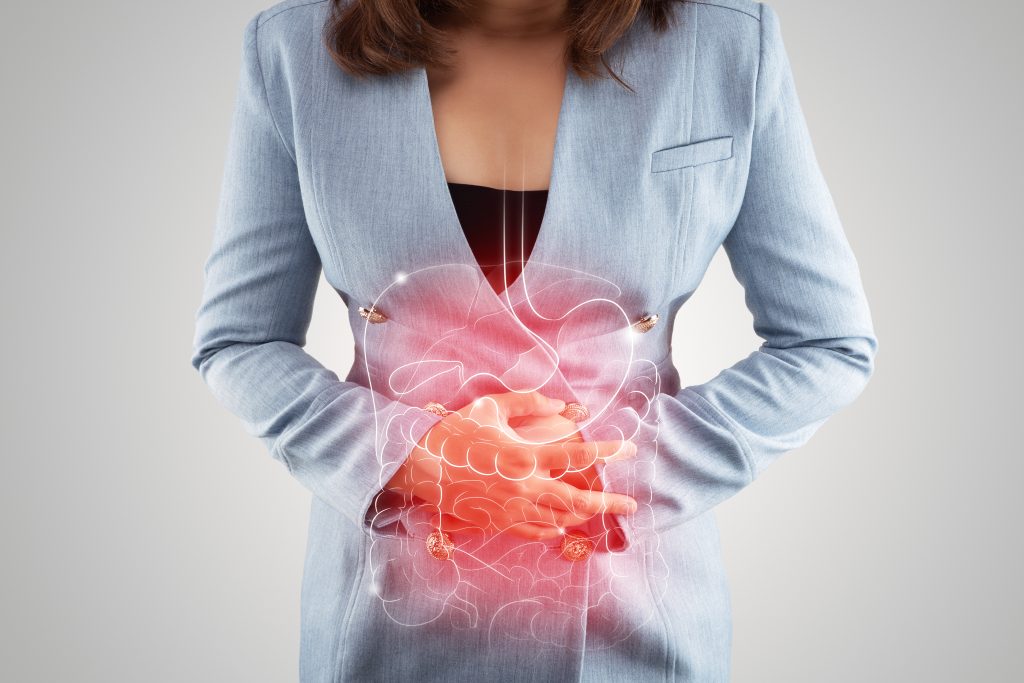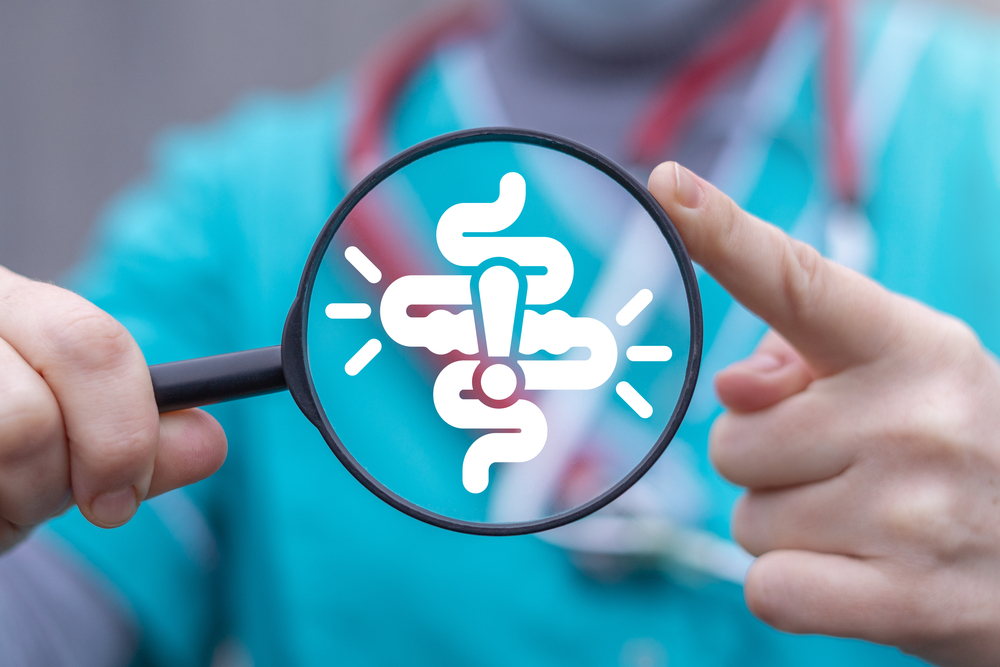Irritable Bowel Syndrome (IBS) is a chronic digestive condition that affects millions worldwide. Characterized by symptoms such as abdominal pain, bloating, constipation, and diarrhea, IBS can significantly impact quality of life. While there is no cure, effective management strategies can help you regain control over your digestive health. IBS is a functional gastrointestinal disorder, meaning the digestive system’s structure appears normal, but its function is impaired.
What Are Common Symptoms of Irritable Bowel Syndrome?
Symptoms can vary from person to person but typically include abdominal discomfort, cramping, bloating, gas, and changes in bowel habits. Some individuals experience chronic constipation (IBS-C), while others deal with frequent diarrhea (IBS-D). In some cases, symptoms alternate between constipation and diarrhea (IBS-M).
The most common symptoms of IBS include:
- Abdominal pain and cramping, usually relieved by a bowel movement
- Bloating and excess gas
- Chronic constipation, diarrhea, or alternating between both
- Mucus in stool
Stress, certain foods, and hormonal changes can trigger these symptoms, making it essential to develop a personalized management plan that addresses individual triggers and needs.
Top Tips for Digestive Health: Managing IBS Effectively
Managing IBS requires a combination of treatments, lifestyle changes, and stress management. While medications can offer relief, long-term success often depends on dietary and lifestyle adjustments that promote gut health.
How Can I Improve My Gut Health with IBS?
Improving gut health starts with a balanced diet and avoiding known triggers. A low FODMAP diet is one of the most effective dietary approaches for managing IBS symptoms. This diet involves reducing foods high in certain carbohydrates that are difficult to digest, such as onions, garlic, and specific fruits and vegetables.
Probiotics are another valuable addition to your diet. These beneficial bacteria help restore your gut microbiome balance, alleviating bloating, gas, and irregular bowel movements. Probiotic-rich foods like yogurt, kefir, and sauerkraut are excellent options, or you can opt for a high-quality probiotic supplement.
Incorporating fiber into your diet is crucial, particularly for those with IBS-C. Soluble fiber in oats, flaxseed, and carrots helps regulate bowel movements and ease constipation. For those with IBS-D, limiting insoluble fiber can help reduce diarrhea.
Antihistamines delivered at a certain ratio may help your IBS symptoms. Patients with IBS and with food allergies have been shown to have increased Histamine receptors in their GI system – blocking these can alleviate symptoms.
Overcoming Chronic Constipation: An IBS Management Guide
Chronic constipation is the key issue for individuals with IBS-C. To alleviate constipation, you must increase your intake of fiber-rich foods, particularly soluble fiber. Drinking plenty of water throughout the day is critical, as dehydration can exacerbate constipation. Regular exercise, such as walking or yoga, can stimulate digestion and help maintain bowel regularity.
Medications like fiber supplements (e.g., psyllium) and laxatives can offer relief when dietary changes are not enough. However, it’s important to use laxatives under the guidance of a healthcare provider to avoid dependency.
Comprehensive Bowel Disorder Treatment for Lasting Relief
Effective IBS management often requires a multifaceted approach that includes medications, lifestyle changes, and natural remedies. By addressing the physical and emotional aspects of IBS, individuals can achieve long-term symptom relief.
Medications:
The most effective treatments for IBS depend on the subtype of the condition (IBS-C, IBS-D, or IBS-M) and the severity of the symptoms. Medications commonly prescribed for IBS include:
- Antispasmodics: These medications help reduce cramping and abdominal pain by relaxing the muscles in the gut.
- Anti-diarrheal medications: Loperamide (Imodium) effectively reduces diarrhea in IBS-D patients.
- Laxatives: Laxatives like polyethylene glycol (Miralax) for IBS-C can relieve constipation.
- Probiotics: These supplements help improve gut flora balance, reduce bloating, and improve digestion.
- Antihistamines: Patients with IBS have an increased number of histamine receptors and may respond to combinations of specific antihistamines given at certain ratios.
Dietary Options:
A healthy gut environment supports proper digestion and minimizes discomfort. Certain lifestyle adjustments can enhance gut health and reduce IBS symptoms. Dietary changes play a critical role in managing IBS. Following a low FODMAP diet has proven to be one of the most effective strategies for symptom relief. This involves eliminating high-FODMAP foods for some time and slowly reintroducing them to identify specific triggers.
Additionally, eating smaller, more frequent meals throughout the day is helpful rather than large, heavy meals, which can overwhelm the digestive system. Avoiding foods that irritate the gut, such as processed foods, high-fat meals, and caffeine, is also key to reducing symptoms.
Natural Remedies:
Yes, natural remedies can effectively complement other IBS treatments. Peppermint oil is widely used for its antispasmodic properties, which help relax the muscles in the gut and relieve cramping. Ginger is another natural remedy that soothes the digestive system and reduces inflammation.
Herbal teas like chamomile and fennel can reduce bloating and calm the digestive system. These teas are particularly beneficial when stress triggers IBS symptoms. Soluble fiber supplements, such as psyllium, help improve bowel regularity without causing discomfort, making them a helpful natural remedy for constipation and diarrhea.
Cognitive-Behavioral Therapy:
Cognitive-behavioral therapy (CBT) is an effective treatment for managing Irritable Bowel Syndrome (IBS), including IBS-D (diarrhea-predominant). CBT helps patients manage the emotional and psychological aspects of IBS, which in turn can significantly reduce the frequency and severity of physical symptoms.
CBT teaches patients to manage their emotional reactions to pain, reducing the likelihood that the pain will trigger additional stress or anxiety. It helps patients recognize and change these unhelpful behaviors. By gradually reintroducing activities or situations they’ve been avoiding, patients can reduce the negative impact of IBS on their daily lives. CBT also provides practical tools to help patients regain control by assisting them to understand the link between their thoughts, emotions, and physical sensations.
Mindfulness-based cognitive Therapy (MBCT) encourages patients to focus on the present moment and develop a nonjudgmental awareness of their symptoms. By observing thoughts, feelings, and bodily sensations without reacting to them, patients can reduce the emotional and physical stress that exacerbates IBS.
Looking for fast and effective relief for your digestive discomfort? Visit Get Relief Rx today to explore proven solutions to ease your symptoms and improve your gut health. Click here to start feeling better now!




